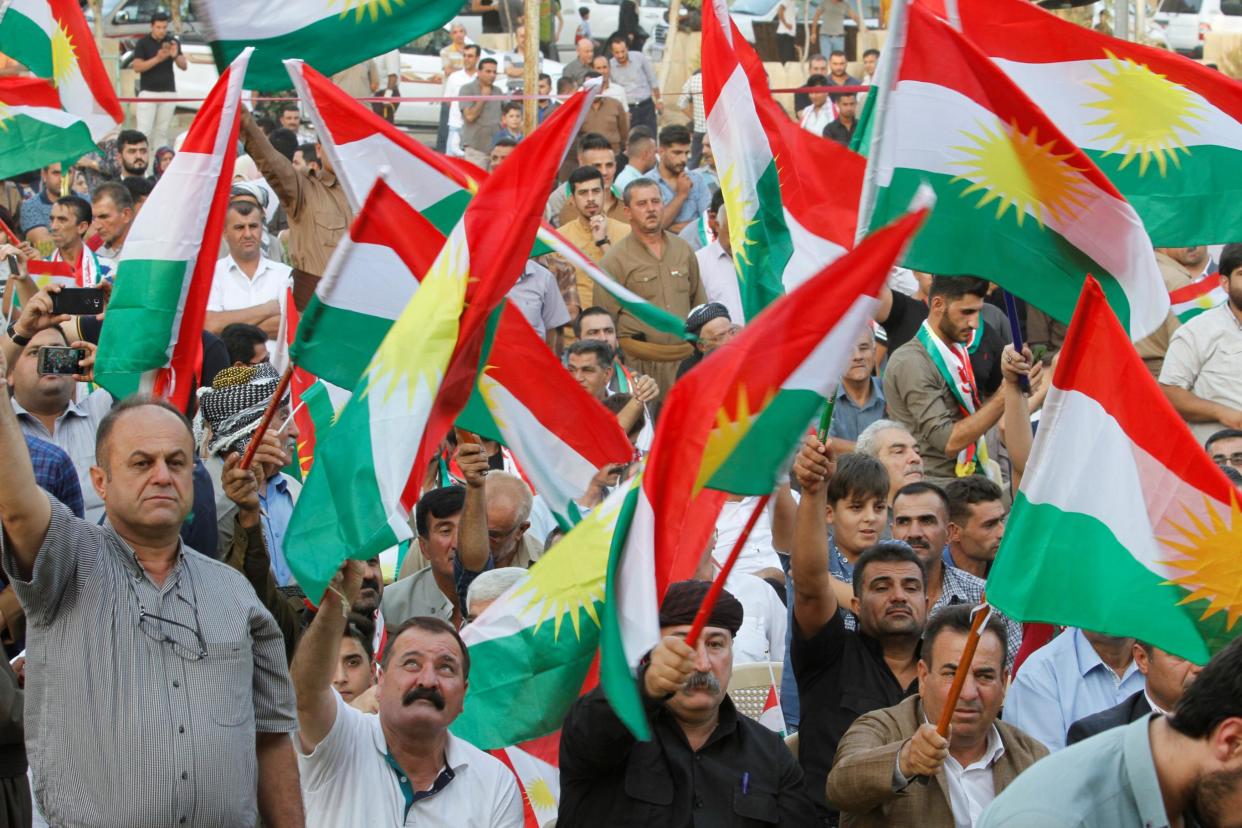As a Kurd, I can tell you why this independence referendum is so crucial

Often enough have we blamed colonisation and Western influences for the devastation and suffering seen in the Middle East. And rightly so. But we should similarly not shy away from criticising those in the Middle East when their democratic integrity is compromised.
One example is tomorrow’s referendum on Kurdish independence, and the fact that many countries in the Middle East seem united in not granting the Kurds their independence, presumably out of fear that the Iraqi Kurdish referendum would boost pro-independence movements in neighbouring Turkey and Iran.
When Scotland planned to hold a vote on its independence, the UK Government’s chief priority wasn’t avoiding independence movements in Wales and Northern Ireland at all costs. Instead, the Scots’ right to a vote on their own independence was accepted. This is a core tenet of democracy: the right of people to decide their own destinies.
Tomorrow Iraqi Kurds will vote on this exact question. The referendum, initially set in 2014 following disputes over the sharing of oil proceeds between the Kurdistan Regional Government and the Iraqi Government, is set to go ahead despite opposition from its neighbours and a lukewarm reception by Western governments.
Turkey and Iran have condemned the vote and Iraq’s Prime Minister Haider al-Abadi has called it a “challenge to the constitution”. Turkey has even kicked off military drills on the much disputed Turkey-Iraq border to flex its muscle ahead of the referendum.
The US and the UK have also been rattled by the referendum – in an effort to appease allies in the region, defence secretary Michael Fallon has even visited Iraq to try and dissuade the Kurds from holding the vote.
Neither the US nor the UK have hesitated to ally themselves with the Kurds in the fight against Isis. This comes as no surprise to the Kurds, a people used to betrayal, especially from the US. In 1991, George W Bush told the people of Iraq to rise up against Saddam. When the Kurds rebelled against the Iraqi dictator, the US abandoned them, leading to a humanitarian crisis and thousands of deaths.
The Kurds, with an estimated population of 35 million, are one of the largest minority groups without a state. They were intentionally scattered across four nations by Britain and France following the First World War. The Iraqi Kurds and the Arabs are distinct ethnic groups, but are counted as one under the Sykes-Picot Agreement. The renowned Arab traveller Ibn Battutah even noted the differences as he travelled through Kurdish lands and saw Kurdish villages on his journey to Persia in the year 1327.
The Kurds have long fought for their freedom, and have faced unimaginable oppression as a people. I am a Kurd, so you could argue that my views are biased. Nevertheless, my family and I have witnessed the struggles of the Kurds.
We fled Saddam’s oppressive regime, which wished to ethnically cleanse the Kurds as part of his Arabisation programme. Every Kurd I know dreams of a peaceful life, and each of us would choose safety and stability over having our own independent state. However, we have realised that the only way to free ourselves from oppression is independence. Too many times have the Kurds worried about their future due to the actions of those around them.
Of course, the Kurds aren’t perfect. Questions have been asked of the leadership and their treatment of captured Isis fighters. It would be naïve to think that the Kurds, destroyed and ravished by war for decades, would have the same juristic and political standards as the West. But Kurdish leaders have condemned terrorism and have built universities, airports and infrastructure worthy of any sovereign state.
In order to achieve a successful and self-sustaining Middle East, we need to support those willing to make a difference. While Kurdistan’s neighbours are busy building weapons, the Kurds are taking in refugees. Kurdistan has taken in an estimated 1.5 million Iraqi refugees and 250,000 Syrian refugees.
Iraqi Kurdistan has taken in the largest number of displaced people outside of Syria, representing 25 per cent of the Kurdish population. Imagine the outcry from almost any other country if it took in nearly two million refugees. Imagine the chaos as people complain about the refugees’ effects on their economy, healthcare system and housing market. Instead, the Kurds have embraced the refugees and integrated them, remembering their struggles as they help those most in need.
In Iraqi Kurdistan, Muslims, Christians, Jews, Assyrians, Yezidis and many other ethnic and religious minorities live together in harmony. British MP Robert Halfon said that he sees Kurdistan as one of the most progressive Muslim regions in Middle East. “Tell me which other country in the Middle East has a Jewish quarter and they are preserving it,” said Halfon as he visited Sulaimaniyah, a city in Kurdistan.
Furthermore, Kurdish women play a significant role in society. They have important roles politically and militarily, unlike the Kurds’ neighbours. Hero Talabani, a female politician, leads one of the largest political parties in Kurdistan. Militarily, the Kurdish Peshmerga forces in Iraq are estimated to be 160,000 strong, with roughly 30 per cent being women.
“The Kurds have no friends but the mountains,” says an old proverb which reflects the struggle the Kurds have faced for centuries. It’s the dream of every people to determine its own destiny, and the Kurds’ struggle to even hold a referendum has shown the problems in the Middle East. The Kurds are at the forefront of progress in the region, and should be supported on their road to independence so that every Kurd can have the right to life, liberty and the pursuit of happiness.

 Yahoo News
Yahoo News 
